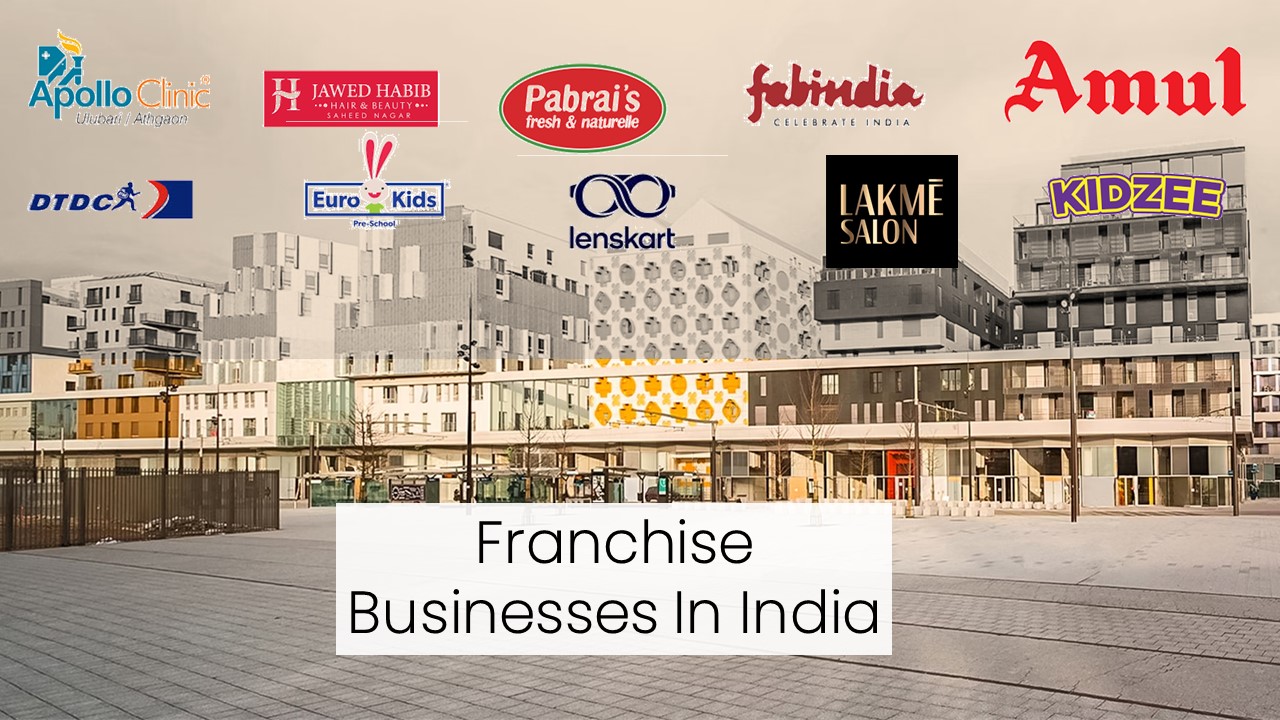
Franchise businesses represent a dynamic sector of the economy, offering entrepreneurs an opportunity to leverage established brand names and proven business models. In 2024, the franchise industry continues to thrive, contributing significantly to global economic growth. Statistics show that there are over 750,000 franchise establishments that generate approximately $800 billion annually, underscoring the vital role franchises play in fostering economic development and job creation. By tapping into this model, individuals gain access to brand recognition, operational support, and a higher likelihood of success compared to independent startups. This analysis delves into the core strategies that drive the success of the franchise model, illustrating how it remains a compelling option for entrepreneurs looking to start their business journey. This piece aims to provide a thorough understanding of the franchise landscape, highlighting its potential for scalable growth and sustained profitability.
| Sl | Brand | Industry | APPLICATION URL |
| 1 | Amul | Dairy Products | Apply Here |
| 2 | FabIndia | Retail Apparel | Apply Here |
| 3 | Jawed Habib Hair & Beauty | Beauty & Wellness | Apply Here |
| 4 | DTDC | Courier Services | Apply Here |
| 5 | Lenskart | Eyewear | Apply Here |
| 6 | EuroKids | Education & Training | Apply Here |
| 7 | Pabrai’s Ice Creams | Food & Beverage | Apply Here |
| 8 | Kidzee | Preschool Education | Apply Here |
| 9 | Apollo Clinic | Healthcare | Apply Here |
| 10 | Lakmé Salon | Beauty Salons | Apply Here |
Amul – The Taste of India
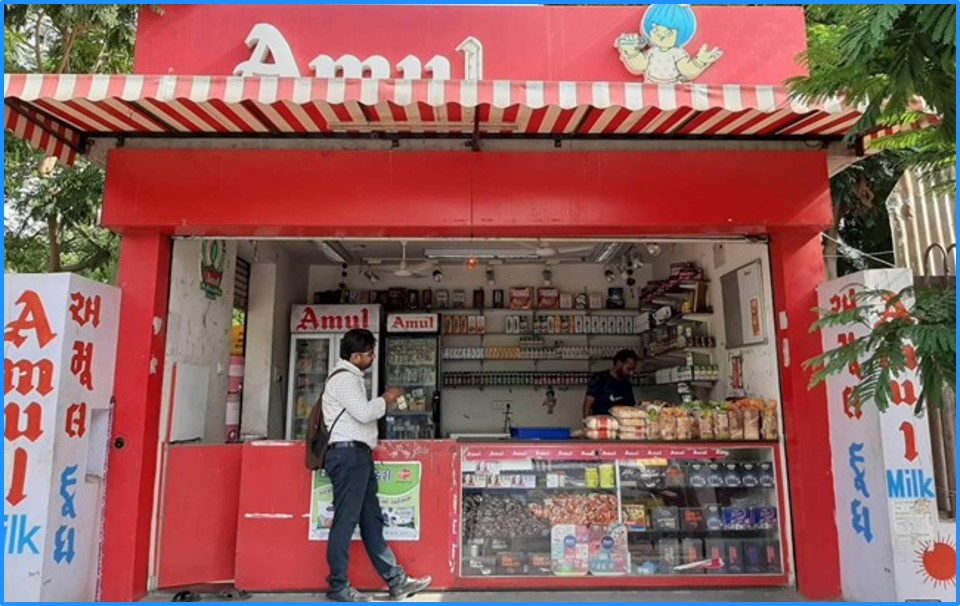
Founding and Journey Amul, which stands for Anand Milk Union Limited, was founded in 1946 in the small town of Anand in Gujarat, India. This initiative was spurred by the vision of Dr. Verghese Kurien, who is often hailed as the ‘Father of the White Revolution’ in India. The company started as a response to the exploitation of small milk producers by traders and agents in small towns. Instead of selling their milk to exploitative middlemen, local farmers were encouraged by Kurien and local leader Tribhuvandas Patel to form a cooperative, which later became the largest of its kind in India.
Growth and Expansion From a modest beginning, Amul has grown into a dairy giant, mainly due to its successful model of milk procurement (based on cooperative principles), processing, and marketing. It operates on a cooperative model, with 3.6 million milk producers collectively owning the brand. Amul spurred India’s White Revolution, which made the country the world’s largest producer of milk and milk products. In terms of numbers, Amul collects 14.85 million litres of milk from 18,536 village milk cooperative societies daily.
Products and Services Amul’s product range covers an extensive variety of dairy products, including milk, butter, ghee, milk powders, yogurt, cheese, and ice cream. Amul is also known for its innovations, like launching probiotic yogurts or sugar-free delights catering to health-conscious consumers. Their most iconic product, Amul Butter, is famous for its catchy advertising, especially the Amul girl, a mascot used in one of the longest-running advertisement campaigns in the world.
Company Operations and Workforce Amul operates from its headquarters in Anand, Gujarat, but its products are available across India and in overseas markets. The cooperative operates more than 60 sales offices nationwide and exports to more than 40 countries. The workforce of Amul is a testament to its cooperative model, where every employee is considered a part of the family and contributes towards its mission. The company employs around 1,000 people directly but supports a much larger employment ecosystem through its cooperative network.
Business Impact and Case Study Amul’s business model is a stellar example of inclusive growth and sustainable development. A significant case study is its role during the White Revolution, which not only increased milk production but also improved the lives of millions of rural farmers. By providing farmers with fair prices and regular income, Amul played a pivotal role in enhancing rural livelihoods. Furthermore, during economic downturns or crises like the COVID-19 pandemic, Amul continued to operate without disrupting the supply chain, showcasing resilience and commitment to farmer welfare.
| Brand | Amul |
| Infrastructure Investment (INR) | 2 Lakhs – 6 Lakhs |
| Area Required (sq ft) | 300 – 500 |
| Franchise Fee (INR) | 50,000 |
| Royalty Fee | 2.5% of Sales |
| Profit Margin (%) | 20% – 25% |
FabIndia – Connecting Artisans to the World
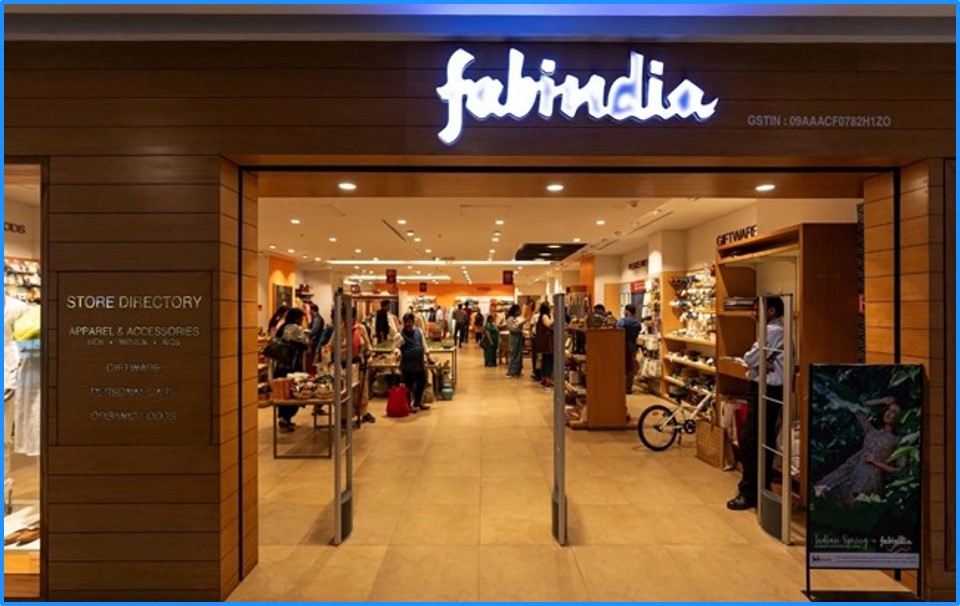
Founding and Journey FabIndia was founded in 1960 by John Bissell, an American working in the retail industry, who came to India in 1958 on a Ford Foundation grant to work with the Central Cottage Industries Corporation. Bissell was moved by the rich craftsmanship of Indian artisans and envisioned creating a platform that could bring traditional Indian craft techniques to the urban markets, not only in India but globally. Starting from a small space in Delhi’s Greater Kailash, FabIndia began by exporting home furnishings.
Growth and Expansion Over the decades, FabIndia has grown from dealing in home furnishings to offering a diverse range of products in clothing, personal care, organic foods, and furniture. It transitioned from export to a domestic focus in the 1970s as the Indian market opened up. Today, it operates over 327 stores across India and several international outlets, making it one of India’s largest private platforms for products that are made from traditional techniques and hand-based processes.
Products and Services FabIndia’s product line showcases India’s traditional craftsmanship blended with contemporary design. It includes garments for men, women, and children; accessories; bedding; furnishings; home products; personal care products; organic foods, and recently, western wear through its brand ‘Fabels’. Every product is sourced from rural artisans across India, supporting over 40,000 craft based rural producers to preserve India’s traditional handicrafts.
Company Operations and Workforce Headquartered in New Delhi, India, FabIndia links over 55,000 craft-based rural producers to modern urban markets, creating a base for skilled, sustainable rural employment, and preserving India’s traditional handicrafts in the process. The company is known for its ethos of social responsibility and has fostered a marketplace for indigenous craft communities, which have been otherwise marginalized.
Business Impact and Case Study A pivotal case study for FabIndia would be its innovative supply chain model, which integrates rural artisans directly with mainstream markets. This model not only ensures that a larger share of the retail price goes to the artisan but also reduces the risk by providing them with upfront payments. Moreover, through its community-owned companies, the artisans are made shareholders, which empowers them financially and socially.
| Brand | FabIndia |
| Infrastructure Investment (INR) | 50 Lakhs – 1 Crore |
| Area Required (sq ft) | 1000 – 1500 |
| Franchise Fee (INR) | 5 Lakhs |
| Royalty Fee | 4% of Sales |
| Profit Margin (%) | 30% – 40% |
Jawed Habib Salons – Revolutionizing Hair and Beauty Care in India
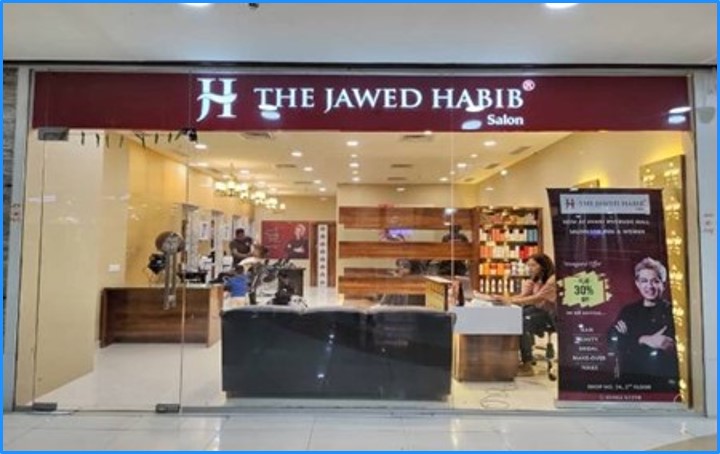
Founding and Journey Jawed Habib Hair & Beauty Ltd. was founded by Jawed Habib, a celebrated hairstylist who hails from a family with a long history in the hair care industry, extending over three generations. Born into a lineage of professional hairdressers to Bollywood stars, Habib leveraged his heritage and extensive training to establish his brand. His education at Morris School of Hair Design, London, laid the foundation for what would become one of India’s leading hair and beauty salon chains. The first salon was inaugurated in the early 2000s, marking the beginning of a new era in hairstyling in India.
Growth and Expansion From its inception, Jawed Habib Hair & Beauty has grown exponentially. Today, the brand boasts over 550 salons across 24 states in India. The company has not only expanded nationally but has also made its mark internationally with salons in Singapore and London. This widespread presence is a testament to its acceptance and popularity, which revolves around its core philosophy of offering economical yet comprehensive beauty and grooming services.
Products and Services Jawed Habib’s business extends beyond salons. The company has diversified into education through its academies that offer courses in hair and beauty, thereby nurturing the next generation of stylists. The brand also markets a range of hair care products that embody Habib’s philosophy of hair science. From shampoos and conditioners to specialized hair treatments, these products are designed to maintain healthy hair and enhance styling.
Company Operations and Workforce The operational model of Jawed Habib Hair & Beauty is based on a combination of company-owned and franchise outlets, which has allowed rapid expansion and pervasive market penetration. The company headquarters in New Delhi oversees operations, marketing, training, and franchise management. With a workforce that includes highly trained professional stylists and support staff, Jawed Habib emphasizes continuous education and customer service training to maintain service quality.
Business Impact and Case Study A notable case study that highlights Jawed Habib’s impact is its franchise model, which has democratized the availability of professional beauty services across India. This model has enabled hundreds of entrepreneurs to own and operate their salons under the Jawed Habib banner, thus stimulating local economies and generating employment. Moreover, the brand’s emphasis on standardized service quality and affordable pricing has made professional hair care accessible to a broader segment of the Indian population.
| Brand | Jawed Habib Hair & Beauty |
| Infrastructure Investment (INR) | 20 Lakhs – 30 Lakhs |
| Area Required (sq ft) | 800 – 1200 |
| Franchise Fee (INR) | 2 Lakhs |
| Royalty Fee | 10% of Sales |
| Profit Margin (%) | 15% – 20% |
DTDC – Delivering Value Across India and Beyond
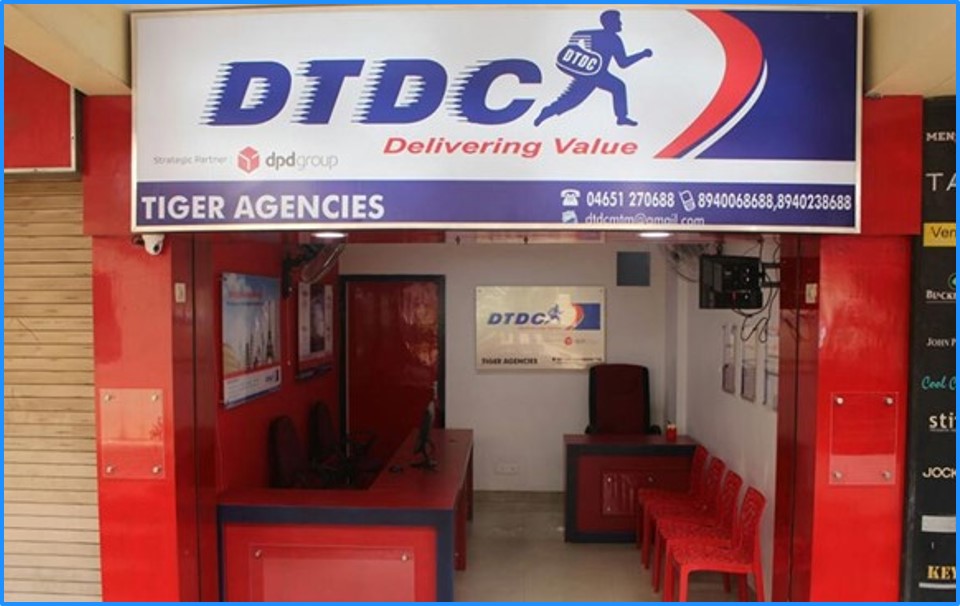
Founding and Journey DTDC Express Limited, widely known as DTDC, was founded in 1990 by Subhasish Chakraborty. Starting as a small courier service with the aim of providing a reliable and efficient solution for parcel delivery in India, DTDC has since evolved into a full-scale logistics and supply chain provider that ranks among the top in the nation. Chakraborty’s vision was to fill the gap in the Indian logistics sector, which at the time was inefficient and unreliable, by creating a network that ensured timely and secure deliveries.
Growth and Expansion Over the years, DTDC has expanded its operations significantly, not just within India but also internationally. Today, it boasts a network that spans over 12,000 pin codes in India, with a presence in more than 21 countries through its subsidiaries and joint ventures, including DTDC UK, DTDC USA, DTDC UAE, and DTDC Australia among others. This global footprint has enabled DTDC to offer a comprehensive range of logistic solutions, from traditional courier services to complex supply chain solutions.
Products and Services DTDC’s service portfolio includes domestic and international parcel service, freight transportation, warehousing solutions, and supply chain management. The company has pioneered several innovations in the logistics sector, such as introducing the concept of franchising in courier services, which has not only expanded its reach but also empowered numerous entrepreneurs across its network. DTDC’s Plus services offer assured next business day delivery to major cities in India, reflecting its commitment to speedy delivery.
Company Operations and Workforce DTDC operates through a hub-and-spoke model with several regional offices and warehouses that manage its vast network of franchises. Its head office in Bangalore oversees its entire operations, strategy development, and technology upgrades. The company employs over 35,000 individuals including a mix of direct and indirect employees who manage day-to-day operations, customer service, technology, and back-end support functions.
Business Impact and Case Study A significant business case study for DTDC is its integration of technology into logistics, such as the implementation of real-time tracking systems and the use of artificial intelligence to optimize delivery routes and parcel handling. These innovations have not only improved operational efficiency but have also enhanced customer satisfaction by providing transparency and faster service delivery. Furthermore, DTDC’s focus on franchising has fostered entrepreneurship across India, creating jobs and promoting regional economic development.
| Brand | DTDC |
| Infrastructure Investment (INR) | 1.5 Lakhs – 3 Lakhs |
| Area Required (sq ft) | 250 – 400 |
| Franchise Fee (INR) | 1.5 Lakhs |
| Royalty Fee | N/A |
| Profit Margin (%) | 10% – 15% |
Lenskart – Revolutionizing Eyewear in India
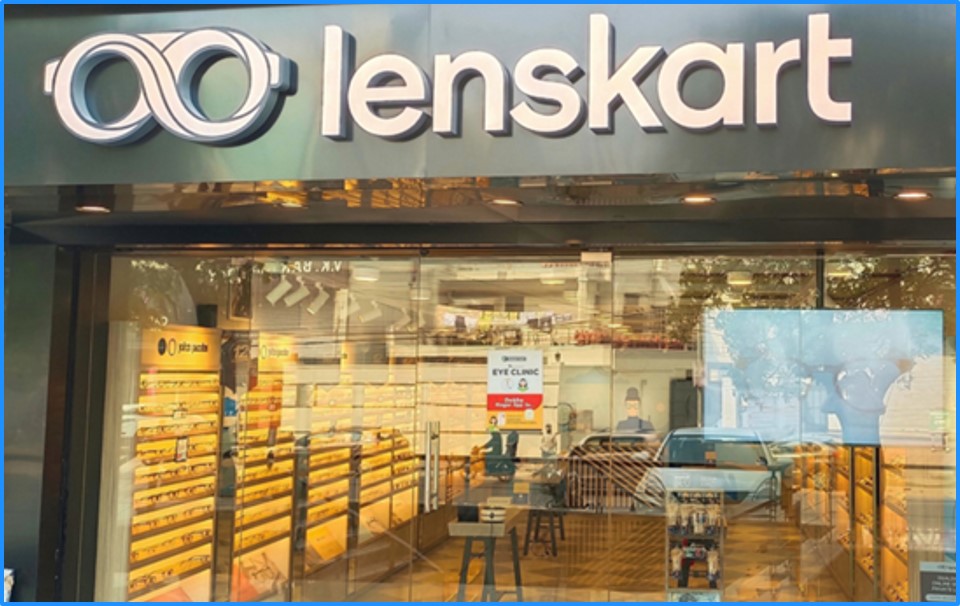
Founding and Journey Lenskart was founded in 2010 by Peyush Bansal, a former Microsoft employee, along with Amit Chaudhary and Sumeet Kapahi. The company began as an online portal for eyewear, a novel concept in India at the time, aiming to provide affordable, fashionable, and high-quality glasses to the masses. The inspiration came from Bansal’s realization of the immense markup in prices by traditional optical retail stores and the lack of access to affordable eyewear for the vast majority of Indians.
Growth and Expansion From its initial days as an online-only platform, Lenskart has grown into an omnichannel retailer, blending its strong online presence with a widespread physical store network across India. As of now, Lenskart operates over 500 stores in more than 70 cities across India. Its aggressive expansion is supported by significant investments from major global investors, including SoftBank. Lenskart also expanded internationally with operations in Singapore and the UAE, marking significant steps in its global journey.
Products and Services Lenskart’s product lineup includes prescription eyeglasses, sunglasses, and contact lenses. It has differentiated itself through technology-driven solutions like a virtual try-on system, which allows customers to try glasses on digital images of their faces, and home eye check-up services with portable eye-testing equipment. Lenskart has also introduced its own range of eyewear brands, including Vincent Chase and John Jacobs, which have become quite popular for their style and affordability.
Company Operations and Workforce The company’s operations are rooted in a robust supply chain that leverages technology at every step—from procurement and manufacturing to logistics and customer service. Lenskart’s manufacturing facility in Delhi NCR has the capacity to produce over 300,000 glasses a month, equipped with state-of-the-art machinery from Germany. The workforce is a dynamic mix of tech experts, fashion curators, sales personnel, and customer service representatives, all driven by a mission to change the way India views eyewear.
Business Impact and Case Study A notable case study in Lenskart’s business strategy is its innovative use of technology and data analytics to revolutionize the traditional eyewear industry. For instance, its investment in robotic technology that delivers glasses that are accurate to within 3 decimal points has set new standards in eyewear manufacturing precision in India. Additionally, its unique home eye-testing service, which was a first in India, not only increased accessibility to eye care but also created a new segment in the market.
| Brand | Lenskart |
| Infrastructure Investment (INR) | 30 Lakhs – 35 Lakhs |
| Area Required (sq ft) | 300 – 500 |
| Franchise Fee (INR) | 2 Lakhs |
| Royalty Fee | N/A |
| Profit Margin (%) | 25% – 30% |
EuroKids – Nurturing Young Minds for a Brighter Future
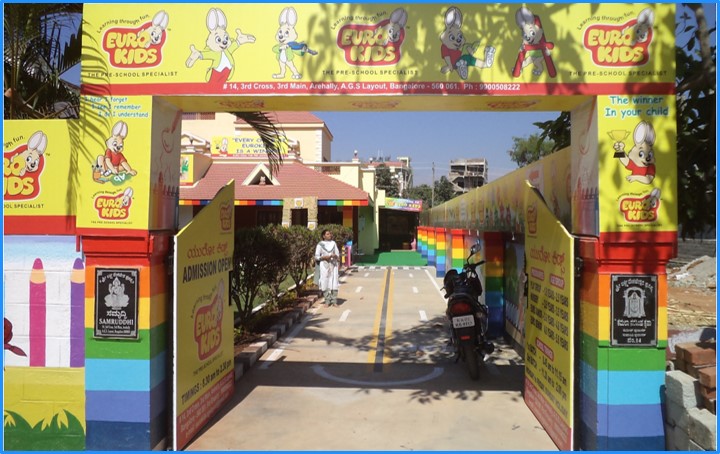
Founding and Journey EuroKids International Private Limited was founded in 2001 by Prajodh Rajan and Vikas Phadnis, who identified a need for a structured early childhood education system in India. The concept emerged from the lack of standardized preschool education that could simultaneously nurture young minds and prepare them for formal schooling. EuroKids started with two preschools in Mumbai and quickly set the standard for early childhood education across the country.
Growth and Expansion EuroKids has grown exponentially since its inception, becoming one of India’s leading preschool chains. Today, it operates more than 1000 centers across 350 cities and towns in India, catering to the educational needs of over 300,000 children. The growth trajectory of EuroKids includes the acquisition of other preschool chains, further solidifying its market presence and expanding its reach.
Products and Services EuroKids offers a range of programs tailored for different age groups, starting from Play Group to Senior KG (Kindergarten). The curriculum is designed to ensure holistic development, focusing on eight essential areas including language, mathematics, science, and arts, along with providing a safe and nurturing environment. The company also offers daycare services under the brand name EuroKids DayCare, catering to the needs of working parents by providing a secure and stimulating environment for children.
Company Operations and Workforce Headquartered in Mumbai, EuroKids employs a large team of education professionals, including teachers, curriculum developers, and child care experts who are dedicated to providing high-quality education and care. The company operates through a franchise model, which has been a significant driver of its rapid expansion. This model allows for standardized education and care across its centers, maintaining quality through rigorous training and support systems for franchisees.
Business Impact and Case Study A notable case study on EuroKids would be its ‘Child First’ ideology that drives its pedagogy. This philosophy ensures that the child’s development, safety, and engagement are prioritized, which is reflected in their innovative initiatives like ‘EuroSafety’, a comprehensive safety program that includes safe school protocols, and ‘Touch Points’, which are parent-teacher interactions to discuss the child’s progress. The success of EuroKids has shown that high standards in early childhood education can be met through franchising while ensuring scalability and quality.
| Brand | EuroKids |
| Infrastructure Investment (INR) | 10 Lakhs – 15 Lakhs |
| Area Required (sq ft) | 2000 – 3000 |
| Franchise Fee (INR) | 2 Lakhs |
| Royalty Fee | 7% of Sales |
| Profit Margin (%) | 25% – 30% |
Pabrai’s Fresh & Naturelle Ice Creams – Delighting India with Natural Flavors
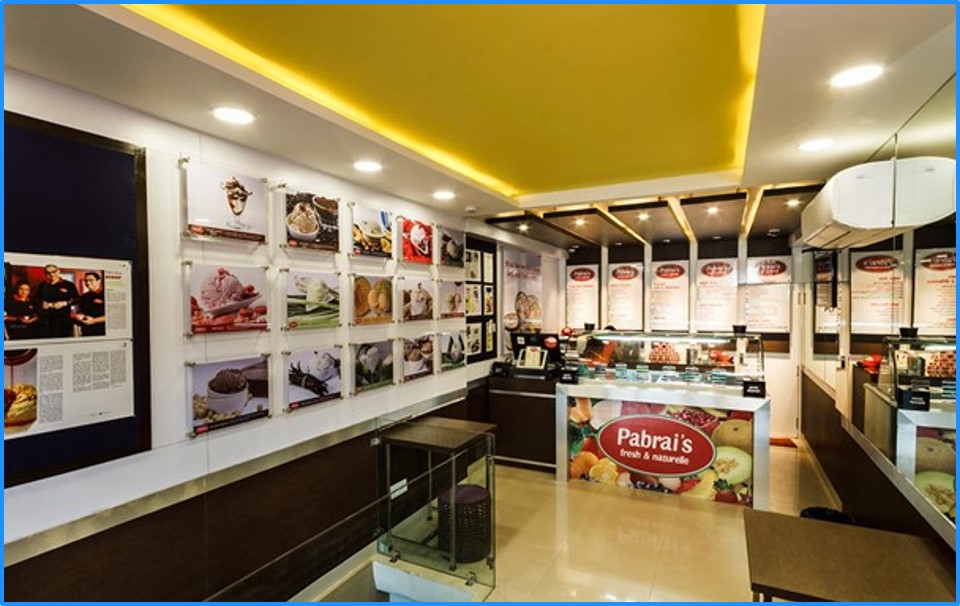
Founding and Journey Pabrai’s Fresh & Naturelle Ice Creams was established in 2008 by Kunal Pabrai and his family in Kolkata, India. The company was born out of a passion for creating premium, natural ice creams without any artificial flavors, colors, or essences. The concept was to bring back the authentic taste of natural ingredients in a market that was largely dominated by mass-produced ice creams with synthetic additives. Starting with a single store, Pabrai’s has emphasized quality and natural ingredients, capturing the palates of ice cream lovers across the country.
Growth and Expansion From its modest beginnings, Pabrai’s has expanded significantly, now boasting over 50 outlets across major cities in India, including Bangalore, Chennai, Delhi, and Hyderabad. The brand has made a name for itself through its unique offerings and has catered to an ever-growing clientele who appreciate the genuine taste of natural ingredients. The expansion has been both through company-owned stores and a strong franchise network that has helped propagate the brand’s philosophy and products.
Products and Services Pabrai’s is renowned for its wide array of ice cream flavors, which include exotic varieties like Nalen Gur (Date Palm Jaggery), Tulsi (Holy Basil), Sandalwood, Fresh Turmeric, and more traditional flavors like Vanilla and Chocolate. Each flavor is crafted using real ingredients sourced directly from their native regions to ensure authenticity and quality. The company also engages in continuous innovation, often introducing seasonal and limited-time flavors to entice the palate of its diverse customer base.
Company Operations and Workforce The operational strategy of Pabrai’s emphasizes minimal processing to maintain the natural properties of ingredients. The company’s main production facility in Kolkata is equipped with state-of-the-art machinery that ensures hygienic conditions and efficient production without compromising on the artisanal quality of the ice creams. The workforce is a blend of experienced food technologists, culinary experts, and dedicated sales personnel, all driven by a passion for delivering quality natural ice cream.
Business Impact and Case Study A pivotal business case study for Pabrai’s is its focus on niche marketing and customer loyalty. By positioning itself as a provider of all-natural ice creams, Pabrai’s has carved out a distinct segment in the competitive ice cream market. This focus has not only garnered a loyal customer base but also allowed the company to command a premium price for its products, reflecting the quality and uniqueness of its offerings. Moreover, its franchise model has been instrumental in scaling up operations while maintaining quality control and brand integrity.
| Brand | Pabrai’s Fresh & Naturelle Ice Creams |
| Infrastructure Investment (INR) | 5 Lakhs – 10 Lakhs |
| Area Required (sq ft) | 250 – 500 |
| Franchise Fee (INR) | 1 Lakh |
| Royalty Fee | 5% of Sales |
| Profit Margin (%) | 20% – 25% |
Kidzee – Shaping Young Minds with Innovative Early Learning
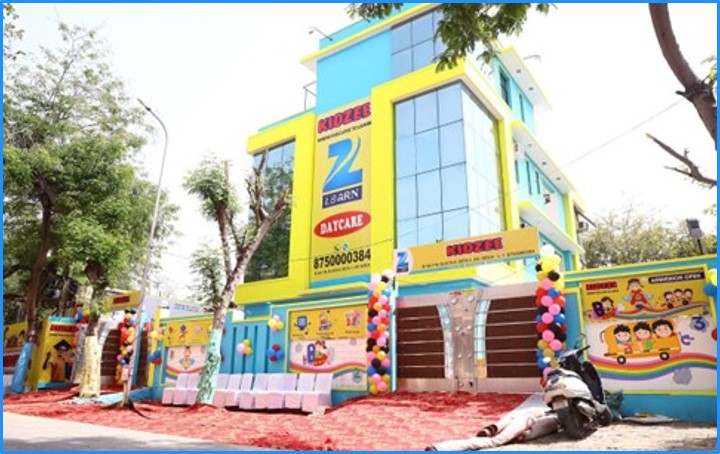
Founding and Journey Kidzee, a part of Zee Learn Limited, was established in 2003 to fill a significant gap in the Indian educational landscape by providing high-quality early childhood education. As one of the largest preschool chains in Asia, Kidzee was founded with the vision of stimulating holistic development in young children, preparing them not just academically, but also socially and emotionally for formal schooling.
Growth and Expansion Since its inception, Kidzee has experienced tremendous growth, boasting over 1900 centers across more than 750 cities in India, and nurturing over 900,000 children to date. This vast network makes it one of the most accessible preschool brands in the country, providing its unique educational approach to a diverse client base. The growth of Kidzee can be attributed to its innovative curriculum and successful franchise model, which has encouraged numerous entrepreneurs across India to become part of the Kidzee family.
Products and Services Kidzee offers a specialized curriculum developed under its proprietary pedagogical model called ‘Interactive iLLUME’. This model is designed to cater to the unique needs of every child and ensures that learning is always aligned with the child’s learning pace and style. The curriculum encompasses a range of activities including digital learning, art and craft, music, and physical activities, ensuring a well-rounded early education. Additionally, Kidzee has extended its services to include daycare facilities in many centers, supporting the evolving needs of modern Indian families.
Company Operations and Workforce Kidzee operates with a centralized leadership structure but grants considerable autonomy to its individual centers to cater to local educational needs and cultures. Its headquarters in Mumbai oversees overall strategy, curriculum development, and franchise operations. Kidzee’s workforce includes a wide range of professionals from educators and child development experts to operations and marketing specialists, all dedicated to the core mission of enriching children’s early learning experiences.
Business Impact and Case Study A significant aspect of Kidzee’s business strategy is its franchise model, which has allowed for rapid scalability and deep market penetration while maintaining high standards of education and care. This model has been particularly impactful in smaller towns and cities where access to quality early childhood education was previously limited. By empowering local entrepreneurs, Kidzee has not only promoted educational access but also stimulated local economies and job creation.
| Brand | Kidzee |
| Infrastructure Investment (INR) | 12 Lakhs – 20 Lakhs |
| Area Required (sq ft) | 2000 – 3000 |
| Franchise Fee (INR) | 3 Lakhs |
| Royalty Fee | 15% of Sales |
| Profit Margin (%) | 30% – 35% |
Apollo Clinic – Pioneering Healthcare Services Across India
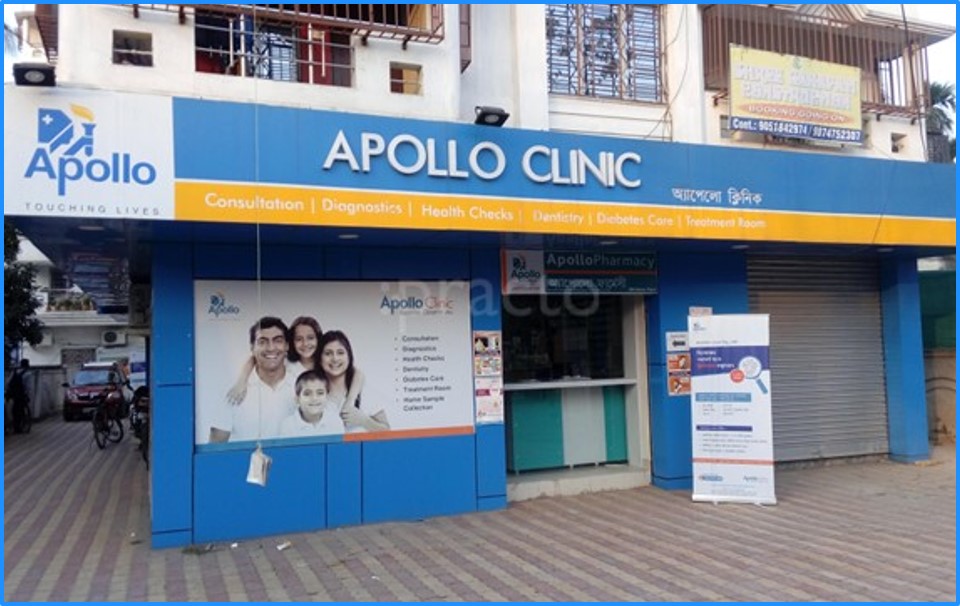
Founding and Journey Apollo Clinic, part of the prestigious Apollo Hospitals Group, was founded by Dr. Prathap C. Reddy in 2002 as an extension of the commitment to offer world-class healthcare services to a wider audience across India. Apollo Hospitals, established in 1983, was India’s first corporate hospital, and Apollo Clinic was envisioned as a network of neighborhood clinics to provide comprehensive healthcare services under one roof in a convenient and accessible manner.
Growth and Expansion From its initial days, Apollo Clinic has expanded to over 70 clinics across India, aiming to bridge the gap in primary healthcare services. These clinics serve as one-stop facilities offering a range of services including consultations, diagnostics, and preventive health checks, designed to meet the everyday health needs of the family with the same standard of medical care as a hospital but in a more accessible format.
Products and Services Apollo Clinic provides a broad spectrum of services that include general physician consultations, specialist consultations, diagnostics, health checks, dental services, and preventive care. It is particularly known for its standardized quality of service and patient care across all its centers, which is supported by the Apollo Hospitals’ principles of medical excellence. The clinics are equipped with state-of-the-art diagnostic technologies and staffed by well-trained medical professionals.
Company Operations and Workforce With a centralized management system, Apollo Clinic ensures that each of its branches adheres to strict quality and operational standards. The network employs a combination of directly hired staff and partnered specialists to offer a wide range of healthcare services. The workforce includes general practitioners, specialists, nurses, diagnostic technicians, and administrative staff, all trained to provide compassionate and efficient care.
Business Impact and Case Study A key case study illustrating Apollo Clinic’s impact is its role in preventive healthcare. In an effort to combat the rising incidence of lifestyle diseases in India, Apollo Clinic has focused on preventive health checks that allow for early diagnosis and management of health conditions. This not only helps in reducing the burden of disease but also promotes a healthier population. Furthermore, their model of neighborhood clinics reduces the strain on larger hospital systems by handling non-emergency cases effectively and efficiently.
| Brand | Apollo Clinic |
| Infrastructure Investment (INR) | 1 Crore – 1.5 Crore |
| Area Required (sq ft) | 1200 – 2000 |
| Franchise Fee (INR) | 10 Lakhs |
| Royalty Fee | 8% of Sales |
| Profit Margin (%) | 20% – 25% |
Lakmé Salon – Beautifying India with Expertise and Elegance
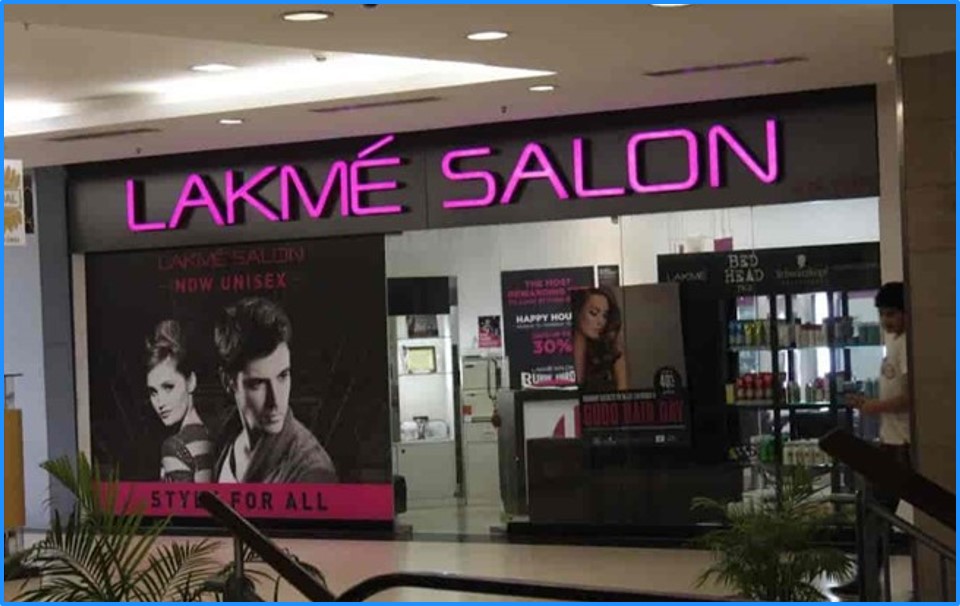
Founding and Journey Lakmé Salon, a subsidiary of Hindustan Unilever, was launched in 1980 to extend the Lakmé brand into the beauty services industry. Named after the French opera, Lakmé, which itself is a derivative of Lakshmi (the goddess of wealth in Hindu mythology), the brand was initially set up to cater to the beauty needs of Indian women. It was one of the first beauty brands in India to introduce a network of salons offering professional beauty services, thus pioneering the concept of the organized salon industry in the country.
Growth and Expansion From its modest beginnings with just a few salons, Lakmé Salon has grown into one of India’s largest and most reputed chains with over 380 salons spread across 100 cities. The brand has made significant inroads into both metropolitan and smaller cities, tapping into the growing awareness and demand for professional beauty services among Indian women. This expansion has been carefully managed to maintain the high standards of service and customer care that Lakmé is known for.
Products and Services Lakmé Salon offers a comprehensive range of beauty and grooming services that include skin care, hair care, and beauty treatments, catering exclusively to women. The services are constantly updated to keep pace with global trends and innovations. Lakmé has been a trendsetter in beauty treatments and has introduced several new services to the Indian market, such as specialized skin consultations, advanced dermatological treatments, and bridal beauty packages, which have become exceedingly popular.
Company Operations and Workforce The operation of Lakmé Salons is marked by a strong emphasis on quality and consistency, which is achieved through rigorous training of its beauty professionals at the Lakmé Academy. The workforce is composed of skilled aestheticians, hair stylists, and beauty experts who undergo continuous training to stay updated with the latest beauty trends and techniques. The central management ensures that each salon meets the brand’s stringent standards in service quality and customer experience.
Business Impact and Case Study A significant case study for Lakmé Salon would be its innovation in bridal beauty services, which has set industry benchmarks. Recognizing the unique needs and immense market potential of wedding-related beauty services in India, Lakmé introduced customized bridal packages, which offer a range of pre-wedding and wedding day services. These packages are designed based on regional beauty traditions and modern aesthetics, making them highly popular among brides-to-be. This strategic focus has not only strengthened customer loyalty but has also significantly boosted the brand’s market share in the beauty services sector.
| Brand | Lakmé Salon |
| Infrastructure Investment (INR) | 50 Lakhs – 60 Lakhs |
| Area Required (sq ft) | 800 – 1000 |
| Franchise Fee (INR) | 10 Lakhs |
| Royalty Fee | 15% of Sales |
| Profit Margin (%) | 25% – 35% |
This information is help me.